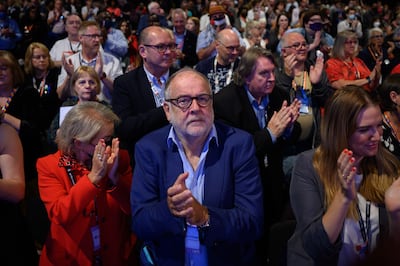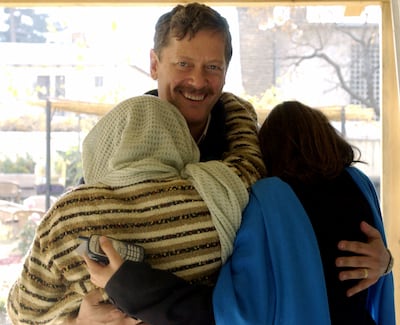A former Foreign Office civil servant who negotiated the release of British hostages from the Taliban has been appointed Minister for the Middle East and North Africa.
In his first act as minister, Hamish Falconer vowed to play a significant role in ending the “devastating war” in Gaza.
By appointing him as the new Mena minister, the Labour government has brought back the specific regional role after it was axed without explanation by former prime minister Boris Johnson two years ago.
“I will do all I can to make sure Britain plays a leading role in bringing the devastating war in Gaza to an end and working with our partners to bring about a more stable, secure and prosperous region,” Mr Falconer wrote on X, formerly Twitter, after his appointment.

‘Super bright’
Mr Falconer, in his late thirties, is also seen as a rising star in the Labour Party, with insiders suggesting he could become a future foreign or defence secretary.
He is also the sixth newly elected MP to be promoted by Prime Minister Keir Starmer straight into a ministerial post, although some Labour insiders believed that a “big hitter” such as former foreign secretary David Miliband might have been given a Middle East peace envoy post.
But Miran Hassan, director of the Labour Middle East Council argued that with Mr Falconer's "extensive background in diplomacy and national security" he was "exceptionally well-suited for his new role".
"His firsthand experience in regions such as Afghanistan, Pakistan and South Sudan, where he dealt with critical geopolitical issues, equips him with the necessary skills and insights to navigate the complex dynamics of the region today."
Mr Falconer, who has only just been elected an MP for Lincoln, was described by former colleagues as “super smart and super bright”, adding “we found him intense but very knowledgeable on the core subjects”.
He is also regarded as “Labour royalty”, being the son of Charlie Falconer, Tony Blair’s former flat mate who was made Lord Chancellor when they entered power in 1997 and exerted great influence on the government.
Famously his father, who became Lord Falconer, failed to become an MP after he refused to withdraw his children from private school at his constituency selection meeting.
His son subsequently went from the highly academic Westminster School to Cambridge University and also spent a year as a visiting scholar at Yale.

Living together
Mr Falconer joined the foreign office fast stream in 2008 after graduating from Cambridge where he was given the Larmor Award for “moral, practical and intellectual achievements”.
On receiving the award, he wrote that “ultimately the subject is about how we as humans can live together”.
He served in the foreign office for over a decade being rapidly promoted to hold posts covering South Sudan and Pakistan, which insiders said will give him significant contacts for the ministerial role.
Voice on the line
But it was as the lead official on Afghanistan focusing on hostage negotiations that saw him capable of operating under significant pressure.
When the veteran war cameraman Peter Jouvenal was taken hostage alongside four other Britons as the Taliban seized power in Afghanistan in 2021, Mr Falconer played a key role in their release

Over six months, he acted as Britain’s chief negotiator with the Taliban during which he managed to persuade them to put the hostages on the phone for brief conversations, proving that they were alive.
“That voice on the phone became very important”, Mr Jouvenal later told the New Statesman magazine, who was detained in a cell with only a small ceiling window for light.
Mr Falconer’s voice was the only outside contact he had, describing it as the “light at the end of the tunnel”.
Public not served
It was under Mr Johnson’s chaotic Conservative government that the Mr Falconer said, in the same article, that he had become tired of the disorder that had descended on his department.
“I just didn’t think the ministers that I was working with were serving the public very well,” he said.
He is now clearly in a position to make his own mark and with significant experience to do the job, having led the UK’s Terrorism Response Team that responds to extremist attacks and kidnappings of Britons overseas.
He was also attached to the National Crime Agency overseeing investigations in human trafficking and spent four years at the Department for International Development.
Mr Falconer will now be in the slightly awkward position of giving orders to his former bosses in the foreign office as their minister.

